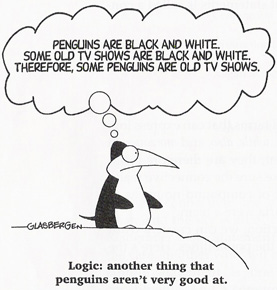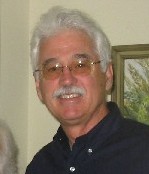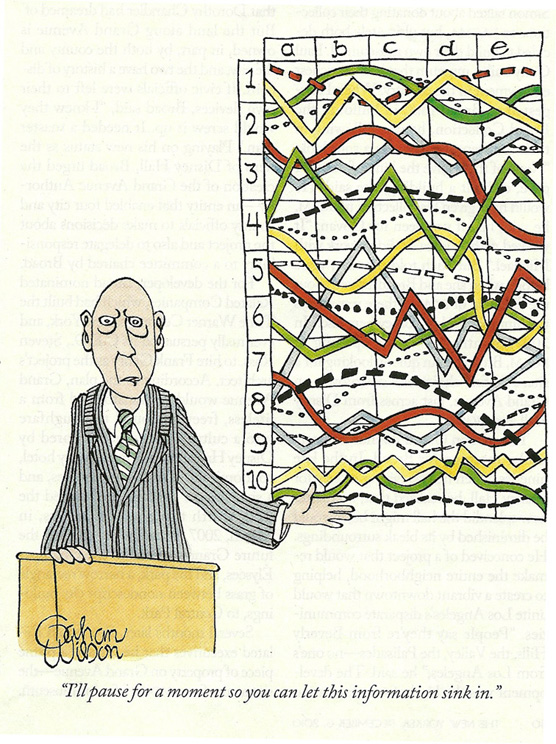Phil. 60

Deductive Logic I
Philosophy 60
Fall Semester 2012
Prof. Dowden
Catalog description: Introduction to deductive logic. Topics include: basic concepts of deductive logic; techniques of formal proof in propositional and predicate logic. 3 units.
Prerequisites: No other college course needs to be taken before enrolling in Philosophy 60, but you must have passed the ELM (math) exam. Philosophy 60 satisfies your GE requirements for Area B5.

Textbook: Sweet Reason: A Field Guide to Modern Logic, Second Edition, by James M. Henle, Jay L. Garfield, and Thomas Tymoczko. Wiley-Blackwell Publishers, 2012. Do not buy the first edition. Here is what the paperback book's cover looks like:

You are encouraged to regularly read the optional, supplemental materials for each chapter at http://sweetreason2ed.com/. For the questions that are answered at the back of the textbook, these supplemental materials give longer and more detailed explanations of why those are the answers. The supplemental materials also provide you with extra examples and more worked exercises.
The overall plan of the course is cover the material in our textbook in order. My role is not to "speak" the book to you, but to focus the discussion onto the most significant points, to enrich the material covered in the book, and to clarify it. If the book isn't clear, ask me to explain it. If I'm not clear, ask me to explain it in some other way. Don't be shy about asking questions; it is the path to understanding. Our course also will have handouts and links to some webpages. You should consider these to be required reading. Here is a list of errors in the required textbook; write in the changes in your own book.
Grades: Your grade will be determined by four homework assignments and three tests, all weighted equally (that is, counting the same for determining your course grade). Here is a schedule:
- Thursday, Sept. 13, 2012 Homework 1 (wk 3)
- Thursday, Sept. 27, Test 1 (wk 5)
- Thursday, Oct. 11 Homework 2 (wk 7)
- Thursday, Oct. 25, Homework 3 (wk 9)
- Thursday, Nov. 8, Test 2 (wk 11)
- Tuesday, Nov. 27, Homework 4 (wk 13)
- Final exam, Dec. 13, 10:15
Professor: My office is in
Mendocino Hall, room 3022, and my weekly office hours for Fall semester, 2012 are TuTh 9:30-10:30 and 12:00-12:30. Feel free to stop by at any of those times, or to call. If
those hours are inconvenient for you, then we can arrange an appointment
for an alternative time. You may send me e-mail at
dowden@csus.edu or call my office at 278-7384 or the Philosophy
Department Office at 278-6424.
The fastest way to contact me is by email. My personal web page is at
http://www.csus.edu/indiv/d/dowdenb/index.htm

Prof. Dowden
More description: Logic can make you a better reader, a better listener, a better writer, and a better debater.
But logic is abstract. Your civilization requires you to be a better abstract thinker than your great grandparents. You especially need better skills than them at what-if reasoning, at what logicians call "hypothetical reasoning." To illustrate, consider how easy the bear problem is for you compared to the people of rural Russia in the 1920s when a well known psychologist asked them, "Where there is always snow, bears are always white. There is always snow at the North Pole. What color are the bears there?"
Although these Russians were as intelligent as the rest of us, they "would say they had never seen anything but brown bears. They didn't think of a hypothetical question as meaningful," (according to a report by Tim Folger in Scientific American magazine, September 2012). But when you yourself were reading the same question, you temporarily assumed the information given by the psychologist and then figured out the bears at the North Pole are white. You are used to making temporary assumptions and then drawing conclusions from them. Doing this is what the field of logic is all about. Our course is designed to develop your skill at doing this. And you do need to develop these skills because they are more important for you to have in your modern society than for your great grandparents to have in their society.

The English Prime Minister Stanley Baldwin boasted in 1937 that "one of the reasons why our people are alive and flourishing, and have avoided many of the troubles that have fallen to less happy nations, is that we have never been guided by logic in anything we did.” Whatever Baldwin meant by the word "logic," that is not how we are using the word in our course.
For us, logic is the investigation of general principles about what follows from what in reasoning. Our particular course emphasizes the use of symbols, as opposed to English words, in order to represent the form (that is, structure) of a piece of reasoning, and in order to more easily evaluate that reasoning. Symbolic deductive logic is nothing less than a formal language into which arguments can be translated and then evaluated for their quality. So, a symbolic logic course is much more like a mathematics course than is any other philosophy course. Applying symbolic logic forces reasoning to be explicit and rigorous in order to get definite answers to the following kinds of questions. Does that proposition (that is, statement or declarative sentence) follow from these other propositions? Are all these propositions inconsistent with each other? What assumption is needed in order to make this proposition follow from those propositions?
Translating your reasoning into symbolic form does not make you any more objective, just more explicit.
Some logicians hoped the rules of logic would provide an objective and infallible method of resolving all disputes. That dream has not been realized, but symbolic logic does have a certain power. Here is an example. Suppose we are faced with the question of deciding whether the conclusion below follows from the assumptions:
If the maid did it, then it was done with a revolver only if it was done in the parlor. But if the butler is innocent, then the maid did it unless it was done in the parlor. The maid did it only if it was done with a revolver, while the butler is guilty if it did happen in the parlor. So, the butler is guilty.
It is difficult to think about this argument informally, but it will be easy for you to answer the question once you have learned how to treat the argument with symbolic logic.
Deductive logic explores deductively valid reasoning, the most secure kind of reasoning. A mathematical proof is deductively valid reasoning. Inductive reasoning, by contrast, is about less secure reasoning from the circumstantial evidence of the lawyer, the documentary evidence of the historian, the statistical evidence of the economist, and the experimental evidence of the scientist.
Student outcome goals: The expectation is that by the end of the semester you will have achieved the following goals:
Be able to recognize when an English argument is capable of being analyzed with symbolic techniques. Be able to translate a symbolic argument into English and vice versa. Be able to determine if a symbolic sentence is logically true, or logically false, or neither. Be able to determine if a set of symbolic sentences is consistent or, instead, inconsistent. Be able to assess the validity or invalidity of arguments using the techniques of symbolic logic. Be able to create proofs in both predicate logic and propositional logic. Be able to reason more effectively.
Add-Drop: To add the course, try to do so by using
the CMS system. If
the course is full, then see me about signing up on the waiting list.
When there is room, students on the waiting list will be added in this
order: seniors graduating this semester, then all others by random
selection. To drop the course during the first two weeks, use
the CMS system. No paperwork is required. After the first
two weeks, it is harder to drop, and a departmental form is required,
the "Petition to Add/Drop After Deadline." As with any university
course, make sure you are dropped officially (by CMS or by the
instructor or department secretary); don't simply walk away into the
ozone or else you will get a "U" grade for the course, which is counted
as an "F" in computing your GPA (grade point average).
Late assignments, and make-up assignments: I
realize that during your college career you occasionally may be unable
to complete an assignment on time. If this happens in our course,
contact me as soon as you are able. If you promptly provide me with a good
reason for missing a test or homework assignment (illness, accident, etc.), then I'll use your grade on the final
exam as your missing grade. There will be no make-up tests nor make-up
homework. I do accept late homework with a grade
penalty of one-third of a letter grade per 24-hour period beginning at
the class time the assignment is due. Examples.
If you turn in the assignment a few hours after it is due, then your A becomes an A-.
Instead, if you turn in the same assignment 30 hours late, then your A
becomes a B+. Weekends count. No late work will be accepted
after the answer sheet has been handed out (often this will be at the
next class meeting) nor after the answers are discussed in class, even
if you weren't in class that day.
Electronics: No photographing or recording during class is allowed without permission of the instructor. During class, turn off your cellphone. Your computers may be used only for note taking, and not for browsing the web, reading emails, or other activities unrelated to the class. If you use a computer during class, then please sit in the back of the room or in a side row so that your monitor's screen won't distract other students.
Disabilities: If you have a documented disability and
require accommodation or assistance with assignments, tests,
attendance, note taking, etc., please see me early in the semester so
that appropriate arrangements can be made to ensure your full
participation in class. Also, you are encouraged to contact the
Services for Students with Disabilities (Lassen Hall) for additional
information regarding services that might be available to you.
Plagiarism: See the University's policy on honesty and cheating.
A
student tutorial on how not to plagiarize is available online from
our library at
http://library.csus.edu/content2.asp?pageID=357
Food:
Except for water, please do not eat and drink during class. You are welcome to leave whenever the need arises.

Even More Course Description: Our course will begin with a review of some of the material that should have been covered in your critical thinking course. However, our course emphasizes formal logic rather than the informal logic that you studied in your critical thinking course. Formal logic is the same thing as symbolic logic.
The techniques of symbolic logic provide the paradigm method of precisely displaying knowledge (about anything) and of precisely drawing only legitimate inferences from that knowledge. The field gets its name because, unlike informal logic, symbolic logic uses symbols in place of English words. When the logician translates English sentences and arguments into logical symbols, this makes everything very explicit and precise. The process is somewhat like a computer programmer translating informal commands into code for a computer program, or a mathematician translating a word problem into a set of algebra equations. The imprecision is removed during the translation. So, our course reveals what is at the basis of our civilization's notion of rigorous reasoning.
We will translate sentences from our natural language (English) into a formal language, a language of symbols. Because arguments are composed of sentences, we can also translate whole arguments into the formal language. Then we can use special symbolic techniques to test the quality of those arguments.
Using these techniques will make you better able to distinguish a sound argument from a near miss. You will become more logical not only in analyzing arguments and claims but also in generating them. In addition, you will discover what it means to prove something with complete rigor in which nothing is left hidden in the background. That is, you will see what a real proof is.
The course will focus on learning two different symbolic logics: propositional logic and predicate logic. Propositional logic is also called propositional calculus, sentential logic, statement logic and sentence logic. It is a formalism that is useful for analyzing certain arguments (deductions) that crucially use the words "and," "or," "not," and "implies." The words connect propositions (that is, statements) together; so that's why the logic is called "propositional logic." Predicate logic is more complicated and more powerful. It can break propositions down into their subjects and predicates and relationships. This logic is used to represent relationships among objects and to represent the quantity of those objects. We will be learning techniques for symbolizing these propositions and for assessing the quality of arguments using them.
Logic is concerned primarily with arguments forms, and only secondarily with arguments, so these assessment mechanisms will be applied to the form rather than to the content of the argument.
The Greek philosopher Aristotle (384-322 BCE) is the father of logic. He was the first person to notice that arguments can depend on their form and that there is a distinction between deductive and inductive argumention, that is, between arguments whose conclusions are intended to follow from their premises with certainty and arguments whose conclusions are intended to follow from their premises with something less than certainty. Rudolf Carnap (1891-1970) suggested that what we should mean by saying "something less than certainty" is "some probability."
Our course is about symbolic deductive logic. Although deductive logic had its beginning in ideas promoted by ancient Greek philosophers, almost all their reasoning with and about logic was carried out without using symbols. In 1879, symbolic deductive logic, as we will be studying it, was developed in Germany by Gottlob Frege. He constructed the first propositional logic and the first predicate logic. A few years later, but independently, the Italian mathematician Giuseppe Peano also invented a version of predicate logic.
Our course also will pay some attention to the relevance of symbolic logic to three fields: philosophy, mathematics, and computer science, especially computer science. Click here if you'd care to learn more about this.
What is logic? Philosophers disagree on the answer to this question. They agree that it is about inferences and truth's logical liaisons, but they disagree whether, when we study this, we are studying about the human mind, or about the world itself, or about how languages work. Aristotle was never clear about this. Some logicians have said logic is a body of knowledge, like astronomy and biology, but others have said it's more of a tool for thinking. Aristotle wasn't clear on this either, but ancient philosophers who believed it is a tool renamed Aristotle's writings Organon, which is the Greek world for tool. Kant in about 1800 said logic describes reasoning; it is about how people do think. But the American philosopher Charles S. Peirce (1839-1914) disagreed and said logic is only prescriptive of mental processes; it prescribes how we ought to think. In 1879, the German philosopher Gottlob Frege disagreed and said logic is not about thinking; it is about the axiomatization of a body of statements taken to be true. Ludwig Wittgenstein in 1921 said logic expresses what is common to thought, language, and reality. In 1956, the American philosopher Noam Chomsky said humans have an innate understanding of some of the rules of their grammar, namely those abstract rules that are common to all natural languages. Perhaps our understanding of some of the rules of logic is also innate in the same sense, but perhaps not. Well, whatever logic is, that's what we will be studying.
Topics and Outline of the Course: The plan is to cover the following topics. The
date when a certain topic will be covered is approximate. The dates of all homework assignments and tests are definite.
Weeks 1-2
Introduction to Sentential and Predicate Logics
Reading: Chapters 1 and 2 in Henle.
Week 3
Deductive vs. inductive
Translating into sentential logic
Truth tables
Gates and computer logic
Reading: Pages 325-330 in Logical Reasoning (induction vs. deduction)
Reading: Chapter 3 in Henle. Skip section 3.5.
Weeks 4-5
Validity in sentential logic
Well-formed formulas
Tree diagrams
Semantic properties (tautology, consistent, contingent, equivalent)
Reading: Chapters 4 and 5 in Henle. Skip sections 4.4, 4.5, 5.5 and 5.6.
Weeks 5-6
Predicate logic syntax
Translations between natural and formal language
Polyadic logic
The identity predicate
Reading: Sections 6.1 and 6.2 in Henle.
Reading: Chapter 11 on sentential logic in Logical Reasoning.
Skip the sections on 3-valued logic.
Reading: 8.1 in Henle.
Weeks 7-8
Semantics of predicate logic
Interpretations and domains
Aristotelian logic and Venn-Euler diagrams
Syntactic trees
Reading: Sections 7.1 in Henle.
Reading: Chapter 12 in Logical Reasoning, then 4.5 in Henle.
Reading: Sections 7.2 and 7.3.
Weeks 9-10
Proofs in sentential logic
Reading: 9.1, 9.2, 10.1, 10.2.
Weeks 11-13
Proofs in predicate logic
Derived rules of inference
Reading: 11.1, 11.2, 12.1, 12.2.
Weeks 14-15
Implicit assumptions: reflexive, symmetric, transitive
Function symbols
Consistency and completeness
Undecidability
Gödel's Incompleteness Theorem
Expressive limitations of symbolic deductive logic
Philosophy of logic
Reading: Section 12.5.
Reading: handouts.

Study tips: Regularly visit the textbook's help page at http://sweetreason2ed.com/. As you read an assignment, it is usually helpful first to skim the assignment to get some sense of what is ahead. Look at how it is organized and what cues, if any, the author provides to signify main ideas (section titles, bold face, etc.). Make your own notes as you read, especially about the terms in italics and boldface. Stop every fifteen minutes to look back over what you’ve read and mentally try to summarize the key ideas for yourself. This periodic pausing and reviewing will help you maintain your concentration, process the information more deeply, and retain it longer. Notice connections between one section and another. You’ll be given sample questions now and then to help guide your studying for future assignments, but the homework and test questions in our course often will require you to apply your knowledge to new questions not specifically discussed in class nor in the book. This ability to use your knowledge in new situations requires study activities different from memorizing. Your goal is to improve your skills, rather than to memorize information.
Contact me at dowden@csus.edu if you would like more information about our course.
PROF.
DOWDEN /
PHILOSOPHY
DEPT.
COLLEGE
OF ARTS AND LETTERS
/ CSUS
The web address of this file is
http://www.csus.edu/indiv/d/dowdenb/60/f12/syl-f12.htm
updated: October 24, 2012